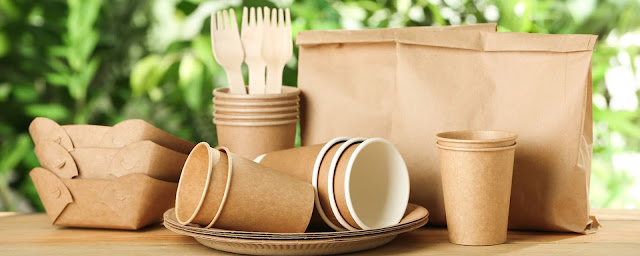Sustainable Packaging Improves Environment's Overall Health And Reduce Carbon Footprint
 |
| Sustainable Packaging |
Removing, Reducing, Recycling, Renewing, and Reusing are the
five R's of Sustainable Packaging.
Moreover, environmentally friendly packaging has less of an influence. Hence, a
foundation for reasonable, healthy, and eco-friendly packaging methods is
established.
Practically every sector vertical uses Sustainable Packaging, but to name a few, the food and beverage,
FMCG, retail trade, wholesale, and healthcare sectors have found it to be
particularly influential. This innovative packaging idea has also added a new
level of creativity, opening up a wide range of possibilities for
businesspeople to investigate many undiscovered areas in this industry.
The Global Sustainable Packaging Market Is Estimated To Account For US$
227.32 Bn In Terms Of Value By The End Of 2021.
The creation and application of packaging strategies with
little negative influence on the environment's overall health and the carbon
footprint is known as Sustainable
Packaging. Pharmaceutical, agricultural, cosmetic, and personal care
products are packaged with sustainable materials such papers, paperboard,
recyclable plastics, and metals. The need for environmentally friendly and
long-lasting product packaging is growing, which is good news for the worldwide
sustainable packaging sectors.



Comments
Post a Comment